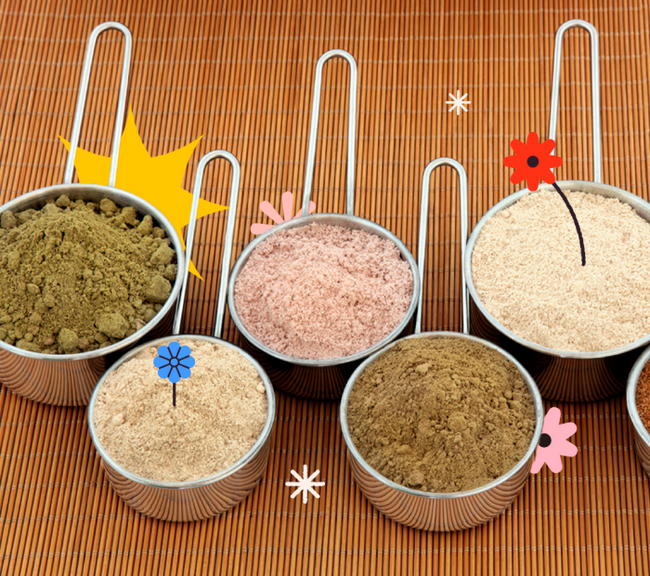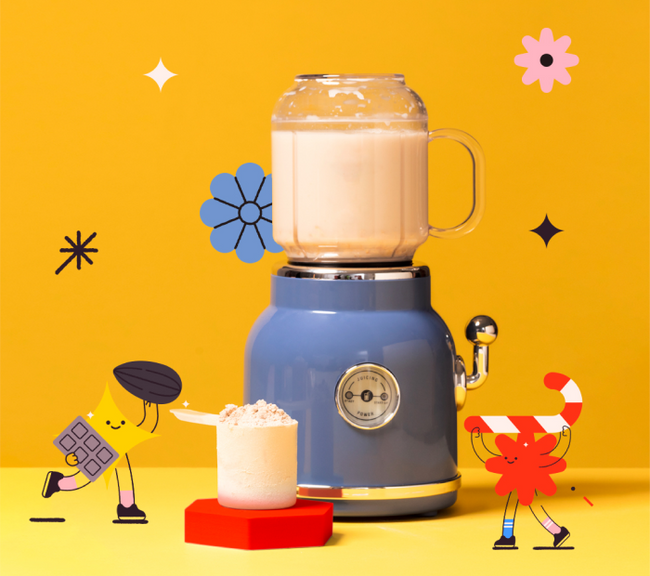Non Dairy plant milk has been increasing in demand in the last decade. Even though oat milk and almond milk have become very common, people are becoming interested in pea milk. In this article, we discuss the benefits of pea milk, how to make it, and how it compares to the other milk alternatives in the market today.

Your new favorite coffee,
with low calories and Pea protein.

Your new
favorite coffee,
with low calories
and Pea protein.
What is pea milk?
Pea milk is a vegan substitute for cow's milk. It's produced from flour processed from yellow field peas. The white hue comes from separating the protein from fiber and carbohydrates. The protein is then purified before being combined with water and other additives.
Pea milk is gluten-free, dairy-free, lactose-free, nut-free, and soy-free. It's a healthy option to most of the other milk products available on the market for people on a limited diet or who have certain food allergies.
Pea milk is fortified with 150 percent more calcium than cow's milk and has at least 7 g of protein per 8 ounces.
A single 8-ounce cup of unsweetened pea milk contains approximately:
Additionally, potassium, Vitamin A, Iron, and Vitamin D are all found in pea milk.
What is pea protein milk?
Pea protein milk is a new type of pea milk that has been created to have a higher protein content. It's made by adding pea protein isolate to pea milk. This makes the pea milk higher in protein and lower in carbs and sugars.
A single 8-ounce cup of unsweetened pea milk contains approximately:
How is pea protein milk made?
The manufacturing process for pea protein milk is very similar to the process used to make soy protein milk. First, the yellow peas are harvested and dried. The pea seeds are then removed from the pods and roasted.
The roasted pea seeds are then ground into a powder and combined with water. The mixture is placed into a blender and blended until it becomes a smooth liquid.
Once the pea milk is made, pea protein isolate is added to increase the protein content. The pea protein isolate is typically made from yellow split peas that have been dehulled and defatted.
The pea protein isolate is added to the pea milk and the mixture is blended again. The pea protein milk is then ready to be packaged and sold.
What are the benefits of pea protein milk?
Pea protein milk is a great alternative to cow's milk for people who are lactose intolerant or have dairy allergies. Pea protein milk is also a good option for people who are looking for a non-dairy milk that is high in protein.
Pea protein milk is easy to digest and is a good source of essential amino acids. Pea protein milk is also low in calories and fat and is a good source of calcium, potassium, and vitamins A, D, and B12.
Finally, it has high iron content. This is due to the fact that most of the iron in pea protein milk is found in the pea protein isolate.
If you're interested to learn more about pea protein and want to dive deeper into its benefits, check out this write-up on pea protein powder benefits.
5 Pea Protein Powder Benefits you Must Know
by Kaivan Dave
July 20, 2022 | 6 min. read
How does it taste?
Pea protein milk has a slightly sweet and nutty flavor. It's thinner than soy milk and has a creamier consistency than almond milk. Pea protein milk can be used in any recipe that calls for cow's milk or other non-dairy milk.
Is is good for your health?
Pea protein milk is very healthy when it is unsweetened. "It's crucial to realize that not all pea protein kinds of milk are created equal," says Marisa Moore, MBA, RDN, L.D., a culinary and integrative dietitian. "Look for added sugars and other additives in the ingredient list."
Vitamins A, D, phosphate, and calcium, are commonly added to pea protein milk. According to Julie Stefanski, MEd, RDN, a nutritionist and representative for the Academy of Nutrition and Dietetics, these will appear at the end of the ingredient list and are good additions to the product.
How it is different from other types of milk?
|
Pea Protein Milk

|
Cow’s Milk

|
Oat Milk

|
Almond Milk

|
Soy Milk

|
|
Protein
|
10g |
8g |
3g |
1g |
8g |
|
Sugar
|
6g |
12g |
19g |
0g |
10g |
|
Calories
|
100 |
150 |
130 |
30 |
131 |
Pea Protein Milk

Cow’s Milk

Oat Milk

Almond Milk

Soy Milk

Pea protein milk contains more protein than cow's milk. Cow's milk has about 8 grams of protein per cup, while pea protein milk has 10 grams of protein. Pea protein milk also has less sugar than cow's milk. One cup of pea protein milk has 6 grams of sugar, while one cup of whole milk has 12 grams of sugar.
In addition, pea protein milk is a good source of calcium, potassium, and vitamins A, D, and B12. Cow's milk is also a good source of these nutrients but pea protein milk contains more calcium and vitamin D.
Finally, pea protein milk is lower in calories than cow's milk. One cup of pea protein milk has 100 calories, while one cup of whole milk has 150 calories.
Pea protein milk compares favorably to other non-dairy milk on the market today. Pea protein milk has more protein than soy milk, almond milk, and oat milk.
In general, if you're curious about the differences amongst the plant-based milk proteins, you may find this write-up about pea protein vs soy protein interesting.
Pea protein vs. Soy protein: Which one is better for you?
by Kaivan Dave
July 20, 2022 | 6 min. read

How do you make pea milk?
To make pea milk, combine 1 cup of peas with 2 cups of water in a blender. Blend until the mixture is smooth. Pour the mixture into a nut milk bag and squeeze to remove the liquid. Store pea milk in the fridge in an airtight container. It's best to consume within 3-4 days of opening. Pea milk can also be frozen for up to 2 months.
How do you make pea protein milk?
It is very simple to create pea protein milk at home. All you need is pea protein powder and water. Just mix 1 scoop (30 grams) of pea protein powder with 8-12 ounces of water (or pea milk brought from the store, or made at home).
Does it have any side effects?
There are no known side effects of pea protein milk. However, as with any food, it is possible to have an allergy to pea protein. If you experience any adverse reaction after consuming pea protein milk, stop drinking it and see a doctor.



















































